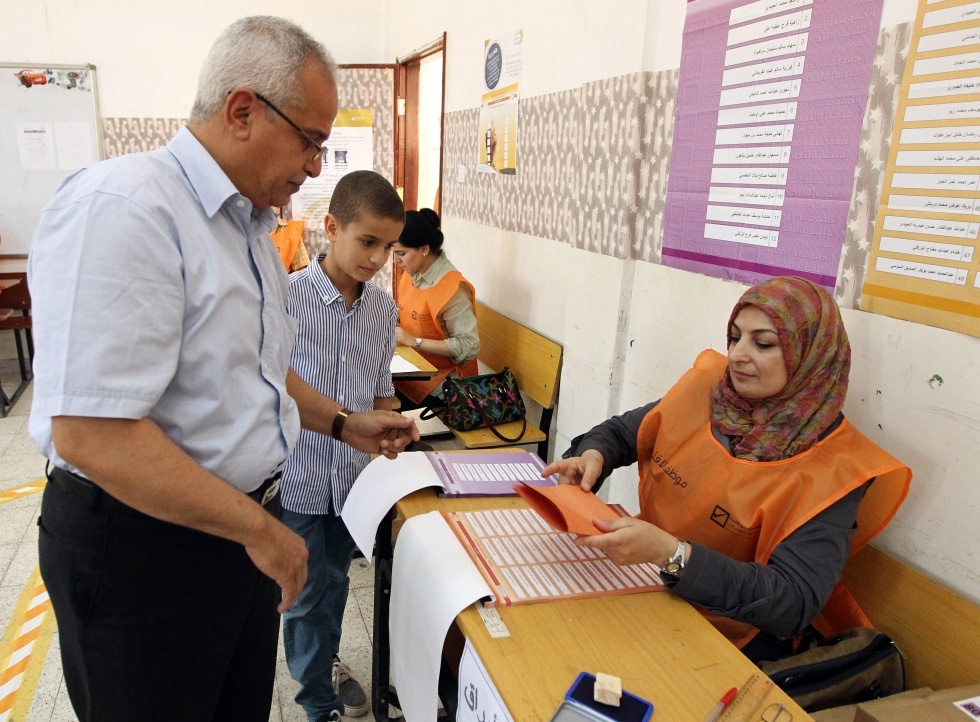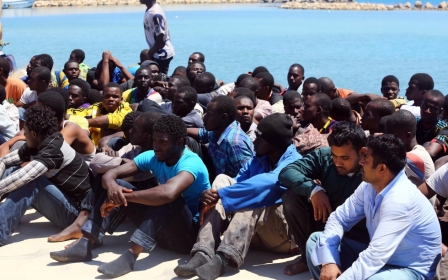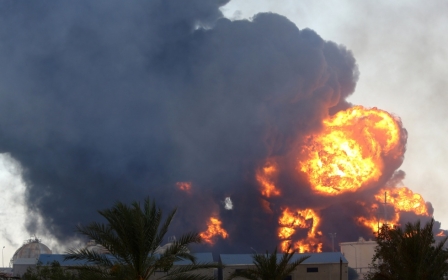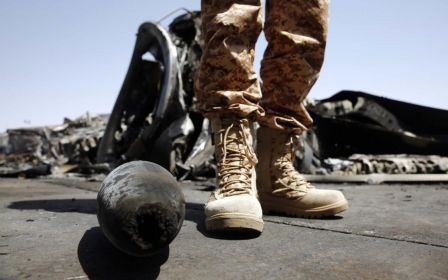New Libya parliament holds first session

Libya's new parliament held its first formal session Monday as clashes were still rocking Tripoli between Islamist and nationalist forces.
The parliament, elected on 25 June, travelled all the way to Tobruk, 1,500 kilometres (1,000 miles) from the capital to take the oath. Rival lawmakers had called for a separate session in Tripoli.
MPs said more than 160 of the 188 elected members were present in Tobruk - a figure a reflects crushing election victory in June of nationalists over Islamists who dominated the former parliament.
Tobruk has been largely spared the deadly violence that has been rocking Tripoli and Libya's second city Benghazi for the past few weeks, prompting an exodus of foreign nationals from the oil-rich north African nation.
State television broadcast footage of the session showed MPs being sworn in at a ceremony attended by representatives of the Arab League, the United Nations and the Organisation of Islamic Cooperation.
The MPs then halt work for a recess before returning in the evening to the Dar Essalam hotel to elect a new speaker, according to MP Abu Bakr Biira, who chaired the session.
Islamist MPs and their allies from the western city of Misrata boycotted the Tobruk ceremony, branding it "anti-constitutional".
In a show of defiance, Nuri Abu Sahmein, who headed the outgoing General National Congress or parliament, invited MPs to Tripoli for a "handover of power" ceremony - an event that failed to take place.
The General National Congress was the first elected parliament in Libya after the 2011 NATO-backed uprising that toppled and killed veteran dictator Muammar Gaddaffi.
It called for a new assembly to be elected after repeated accusations that it was hoarding power, and now analysts say Islamists are trying to make up for their poor electoral performance through military might.
World powers congratulated the new parliament and voiced hope that lawmakers would be able to restore stability to Libya and press ahead with democratic reform.
"The governments of France, Italy, Germany, the United Kingdom, and the United States commend the members of the Council of Representatives for beginning their work today," said a joint statement.
"The convening of the council is an important step towards putting Libya's democratic transition back on track and helping restore law and order to the country," it said.
The European Union said the Tobruk meeting was an "important step" towards democratic transition, and the UN Support Mission in Libya (UNSMIL) urged warring sides to observe a ceasefire.
During a meeting in Washington, US National Security Advisor Susan Rice and Libyan Prime Minister Abdullah al-Thani stressed the importance of "an immediate ceasefire" in Tripoli, the White House said in a statement.
They also discussed the importance of "the participation of all parties in a national dialogue to promote reconciliation", and called on Libya's international partners to "use their influence" to stop the fighting.
Parliamentary speaker elected
The Libyan parliament has elected Oqailah Eissa as its speaker after defeating his rival Abu Bakr Beirah in a run-off vote, the state television reported.
Eissa, a lawmaker from Al-Qubbah town, won the post after winning 77 votes while Beirah obtained 74 votes, a panel tasked with holding the vote said in a statement.
Seven other votes were deemed invalid.
In the first round, Beirah came first with 54 votes followed by Eissa who got 46 votes as the new parliament held its first session on Monday in the eastern city of Tobruk.
Upon his election, Eissa ordered the postponement of the election of his two deputies and a rapporteur for the parliament to Tuesday.
The session was attended and addressed by representatives of the U.N., Arab League and the Organization of Islamic Cooperation (OIC), among others.
The new parliament assumes legislative authority from the General National Congress whose mandate ended months ago.
'A dark tunnel'
Since mid-July, Libya has seen deadly clashes between rival militias in Tripoli, where fighting broke out again on Monday, and in the eastern city of Benghazi.
Tripoli airport has been closed since gunmen, mostly Islamists, attacked it on July 13 in a bid to wrest control from the Zintan brigade of former rebels who have held it since the 2011 revolt.
Meanwhile, Islamist militias control large swathes of Benghazi after having routed special forces from Libya's second city.
The violence in Tripoli and Benghazi has killed more than 220 people and wounded around 1,000.
In a speech at Tobruk, MP Biira urged "those who carry arms to heed reason and wisdom and choose dialogue" over fighting.
UNSMIL chief of delegation Mouin Borhan denounced the violence, and warned that the fighting could plunge Libya "into a dark tunnel".
Foreigners have been fleeing Libya in droves, with the exodus gathering pace at the weekend, when Britain and Greece sent ships to evacuate nationals.
Egyptian Foreign Minister Sameh Shoukri said Monday on a visit to Tunis that up to 10,000 Egyptians fleeing the fighting in Libya are still stranded at the border with Tunisia.
The unrest is seen as a struggle for influence, between both regions and political factions, with authorities failing to rein in the dozens of militias in the absence of a structured regular army and police force.
New MEE newsletter: Jerusalem Dispatch
Sign up to get the latest insights and analysis on Israel-Palestine, alongside Turkey Unpacked and other MEE newsletters
Middle East Eye delivers independent and unrivalled coverage and analysis of the Middle East, North Africa and beyond. To learn more about republishing this content and the associated fees, please fill out this form. More about MEE can be found here.




